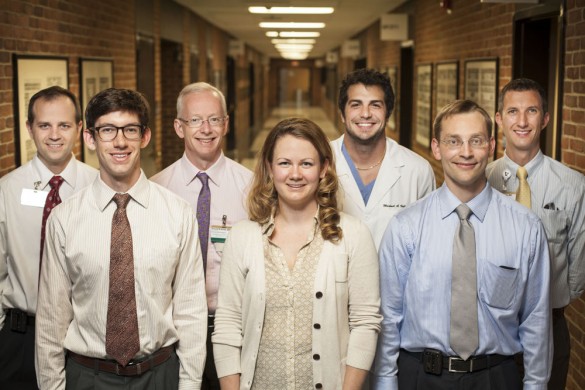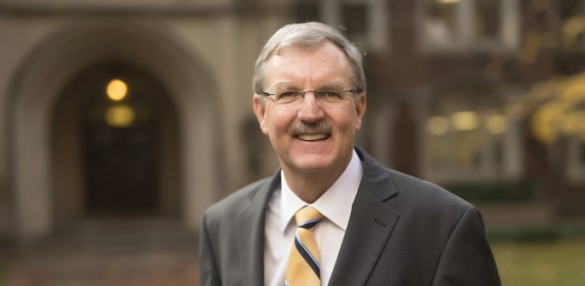
A Vanderbilt University Medical Center initiative being led by teams of resident physicians is reducing repetitive lab tests and making a visible impact on health care delivery.
What began as a friendly challenge prompted by the Choosing Wisely campaign, a national initiative of the American Board of Internal Medicine (ABIM) focused on encouraging increased communication between health care providers and patients about the overuse of laboratory tests and procedures, is creating change at VUMC.
At hospitals across the nation morning blood tests and other frequently performed lab tests have become an entrenched ritual. The Choosing Wisely campaign asks doctors everywhere to consider alternatives to incremental tests performed on patients that may not yield meaningful information.
Since April, VUMC’s Choosing Wisely campaign has resulted in the following:
• Avoided $194,954 in patients’ medical bills
• Prevented 7,862 ml of patients’ blood (more than 2 gallons) from being drawn
• Eliminated 1,572 redundant lab tests
“The beauty of this entire process is that it has been led by a group of residents from multiple departments across the institution,” said Donald Brady, M.D., senior associate dean for Graduate Medical Education and Continuing Professional Development. “The residents reviewed the more than 250 Choosing Wisely recommendations then chose what they felt they could best influence and from their perspective provide significant, positive impact for VUMC.
“It has been very impressive that these residents have worked collaboratively and collectively to improve patient care.”
Prior to the initiative by VUMC’s residents to reduce daily blood draws, approximately 90 percent of patients received comprehensive blood testing every morning. The group’s goal was to decrease this rate to below 70 percent.
The eight resident groups participating in the challenge are all part of the Department of Medicine. Over the past two months, the residents have consistently met their goal – reducing rates of utilization for full blood testing to only those patients who will clearly benefit from additional testing.
Bill Fulkerson, associate hospital director, Professional Services, said the results have broad implications, which are not limited to one area.
“When folks are thinking through the lens of best practices, it can only be good for patient care. The potential for a positive impact on patient satisfaction, the cost of care, and turnaround time for lab results is tremendous,” he said.
Documented improvements with the residents’ challenge include an increase in patient satisfaction, lower cost of care and a reduction in turnaround time for labs results.
“Although we are focusing on labs right now, what we are really talking about is better patient care,” said Josh Heck, M.D., radiology resident and co-chair of the Vanderbilt Choosing Wisely House Staff Steering Committee. “It really is all about taking the best possible care of patients in a very complex environment and getting back to why we are in medicine.”
And in the process, the group is changing the culture around routine testing.
“We are all here as trainees to learn best practices,” said Wade Iams, M.D., internal medicine resident and co-chair of the committee. “This initiative conveys that, especially in the context of the appropriate utilization of testing. There has been so much interest in expansion and in future collaboration. There is so much potential with this effort.”
For now, the group remains focused on daily blood tests but sees that the overuse of health care resources is an area that needs greater attention.
According to PricewaterhouseCooper’s Health Research Institute, it was estimated that in 2008 $1.2 trillion in health care spending was wasteful. Leading health care researchers identified $226 billion in wasteful spending in 2011.
Choosing Wisely at Vanderbilt hopes to improve health care outcomes, provide patient-centered care and reduce expanding health care costs while helping patients choose care that is evidence-based, not duplicative, free from harm and truly necessary.
“We are developing habits that are in the best interests of patients and our health care system, all by asking physicians to make an adjustment in their mentality, to change their default thinking when it comes to frequently used procedures, tests and therapies,” Iams said.
“This initiative at Vanderbilt is an important example of young physicians leading positive change within our health care system and discovering how we can act in our patients’ best interest while learning to be stewards of health care resources as a whole,” added Heck.















